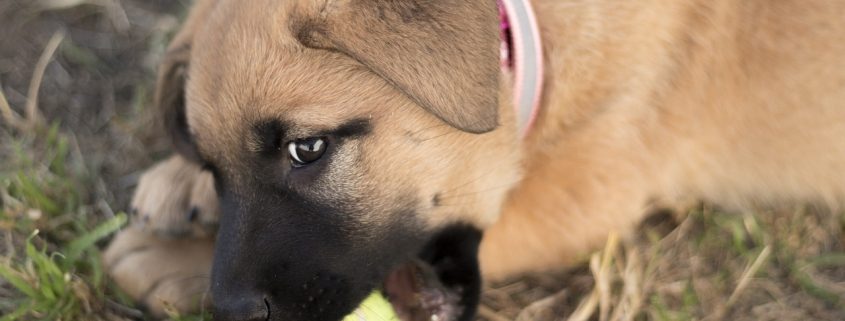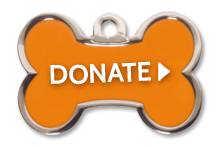Ask Crystal: Mouthy Puppy
Welcome to “Ask Crystal,” where you can ask your pet behavior questions! You can submit your question for Crystal at the bottom of the page!

Hi Crystal,
I have a 3-month ok’d puppy beagle/lab/collie mix. She is going through teething, so she loves to bite. I have had several bites to my hands and fingers when she gets excited. I have not been able to succeed with bite inhibition. My husband says I am encouraging her to bite when I practice bite inhibition. I am not sure how to resolve this problem. We have brought her many chewie toys. She likes these but also likes to nip me and pull on my clothes. Please give me few suggestions. We do walk her morning and evening.
Sincerely,
Mouthy Puppy
Dear Mouthy,
According to behaviorist Dr. Ian Dunbar, bite inhibition is the single most important thing to teach your puppy. Bite inhibition doesn’t mean that we are stopping the puppy from biting completely. They must bite to learn how to inhibit the force of their bites. Adult dogs have very sharp teeth and strong jaws and can do a lot of damage to human skin. Puppies have sharp teeth because they have such weak jaws, and they need some way to be able to get feedback from us and other dogs.
This is a common misconception, but teething is not the reason why puppies play bite. They like to chew on items because they are teething. Play biting is about getting feedback about their mouth pressure. Chew toys are fantastic for quiet times. They are soothing and help teach pups to calm themselves down. I like to give my dogs a chew after dinner when we are trying to get them to wind down for the night. They do not take the place of bite inhibition training.
Socializing and training your puppy will make it less likely that they may bite someone. Most people have a hard time believing their dog would ever bite. We cannot prepare a dog for every situation. A dog could be injured and bite out of pain. It could be very scared in particular situations and bite if it feels threatened. You might step on her tail accidently or she could get her foot caught in something. A dog with good bite inhibition is very unlikely to break skin. When bites do not break skin there is a much better chance at being able to rehabilitate the dog. Bites that do a lot of damage have a poor prognosis.
Other dogs are usually the best teachers of bite inhibition. My first dog as an adult was raised alone. I did not understand bite inhibition so tried just teaching no biting at all. We had no other dogs, and she wasn’t great with other puppies. She had terrible bite inhibition as an adult, and I was on the receiving end while breaking up a dog fight. Every dog I have had after, I have had another dog with, and they had no issues with bite inhibition at all. I currently have an 11-week-old puppy that came to me as a seven-week-old shark. He bit as hard as he could and man it hurt. Four weeks later and the mouthing is at a pressure that does not hurt most of the time. That is almost all due to playing with my other dog. If your puppy is 3 months old and completely vaccinated, find a puppy class, daycare or a puppy friendly adult dog that a friend owns.
Playing with dogs will not take the place of working with you. You still need to teach bite inhibition with humans. Humans have much thinner, more sensitive skin than dogs do. And your puppy knows that you are not a dog so that needs to be taught separately.
The training is two separate parts. We first focus on the force of the bite as we have a limited time to work on this training. About 18 weeks the brain chemistry starts to change, and your window of this training will start closing. By 6 months, the window is pretty much closed, and these strategies won’t work. Once the puppy is only soft mouthing, we work on the frequency of the mouthing.
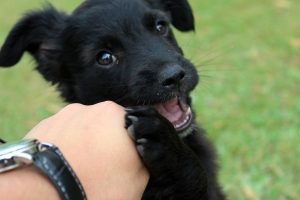 The common advice is to yelp as a puppy would when the pup bites too hard. That can work with some sensitive pups or for a short while but for those high arousal pups it will often make them more excited, and they bite harder. Instead, say, “ouch” and keep the body part still. Do not whip your hand away as this will trigger more mouthing. Look for the puppy to move their head away. Praise the puppy for moving their head and reengage. Praise softer play and continue the play. As soon as it hurts again, say “ouch” and wait for the head to move away. Puppies need this continuous feedback to let them know what mouthing is too hard and what is soft enough. It takes weeks but you should see softer and softer bites. Use the same response for biting at clothes.
The common advice is to yelp as a puppy would when the pup bites too hard. That can work with some sensitive pups or for a short while but for those high arousal pups it will often make them more excited, and they bite harder. Instead, say, “ouch” and keep the body part still. Do not whip your hand away as this will trigger more mouthing. Look for the puppy to move their head away. Praise the puppy for moving their head and reengage. Praise softer play and continue the play. As soon as it hurts again, say “ouch” and wait for the head to move away. Puppies need this continuous feedback to let them know what mouthing is too hard and what is soft enough. It takes weeks but you should see softer and softer bites. Use the same response for biting at clothes.
If the puppy is not responding or is too intense, say, “ouch” and get up a leave for a minute. Sometimes puppies are just too worked up to respond to feedback, so we need to make the point by removing the play from the situation. It is best to play with the puppy in their confinement area. It’s much more effective for you to leave and that is similar to how another dog would do it. A puppy that gets bitten too hard gets up and walks away.
You should see with time that the pressure of her mouthy starts to become softer. As that happens, say “ouch” for less and less pressure until the pup mouths with little to no pressure. Once she is mouthing with little pressure you can also start working on the frequency of the mouthing.
Teach her an Off cue to leave you alone when she mouths. We can use food to teach the puppy this behavior. Hold a treat in your fist. Say “off” and if the puppy doesn’t touch the hand for one second, say “take it” and give them the food. As she gets the game, you can start asking for longer and longer periods of not touching your hand. If she touches your hand, start the count over. Once she understands, use it while she is mouthing. Say “off” and show her food in your other hand to get her to let go. When she does, give her the food reward.
You can also redirect her into a sit or other behavior that she cannot do at the same time as she is mouthing. You can now try to start redirecting the mouthing behavior onto a toy as well.
Another good tip is to hand feed your puppy. Use her mealtime kibble to teach her how to do basic cues like sit, down, target, etc. When you feed her the kibble, hold it under your thumb in your palm and do not lift your thumb until she licks your hand. They will learn impulse control and that they only get the food when they don’t use their teeth.
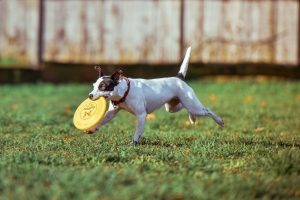 It’s great that you are walking her daily! If you aren’t already, include play sessions like fetch or tug in her day. Have small training lessons throughout the day to take advantage of that puppy brain. Feed her through enrichment toys to stimulate the brain. Burning that excess energy will help decrease the frequency of the mouthing when you get to that step.
It’s great that you are walking her daily! If you aren’t already, include play sessions like fetch or tug in her day. Have small training lessons throughout the day to take advantage of that puppy brain. Feed her through enrichment toys to stimulate the brain. Burning that excess energy will help decrease the frequency of the mouthing when you get to that step.
Some people tell you not to play tug of war with dogs, that it will make them behave aggressively. Tug of war is in fact an excellent game to teach control as long as you play with rules. That means teaching her the rules first. Hold out the toy and say, “take it”, then move the toy back and forth and say “tug”. As she starts to ramp up the excitement, say “drop it” and hold a treat up to her nose. When she drops it, say “yes” and feed the treat. Then ask her to sit and wait until you tell her she can take it again. You can see how different that is from the typical tug session most people play with their puppies.
When we play with puppies, we should take frequent breaks to avoid over arousal. First, puppies need to learn how to calm themselves down. Second, puppies often become mouthier and use more pressure when they are worked up. Take timeouts to ask the puppy to get off or sit or down every minute or so.
Keep in mind that puppies are babies. They get tired and grumpy just like human babies. They tend to have less control over their mouths as they get tired. Make sure you put your puppy down for frequent naps just like you do with a human baby.
I know it sounds confusing to allow the puppy to bite on you when you don’t want her to at all, but this is a critical lesson that she must learn. I know it’s a rough time but it’s just part and parcel of having a puppy. It will be well worth the effort when you have a dog that you know is safe.
Until next time,
Crystal

